Introduction to the Cross-Analysis of Life in North Korea

source
Misled Narrative?
Most people would think that when they read about North Korea through blog posts and books, they perceive North Korea as a whole as a place of cruel rule, murder, and torture under the North Korean regime. The interesting thing is that the real daily experiences of the vast majority of the North Koreans are overlooked, which are the ones that are not in prison camps or the poverty level of their society. These voices of poverty are in line with the poverty in London, or New York. Most of the defectors that want to leave the country are the ones in poverty, and the middle class and wealthy citizens of North Korea don’t have any reason to leave, save for certain special circumstances.
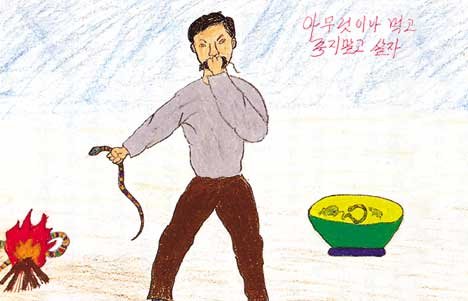.jpg)
This is a sketch by artist Jang Gil-Su, when he was just 13 years old in North Korea, depicting a man eating snakes and rats.
There is a remarkable shortage of North Korean voices, and very few journalists, writers and academics of North Korean origin who are prominent in the field. What people don’t understand is that other citizens that are not in poverty live fairly normal lives. This raises a problem because most of the books that are released in the recent years give consumers and readers a great misconception about what life is like in North Korea.
"We don’t want to “whitewash” the behavior of the regime. Our point is simply that North Koreans are human, and have more in common with the rest of us than typical media portrayals would have you believe." - Daniel Tudor, Ask a North Korean pg 10
It is interesting to consider that The Accusation, a novel written by Bandi is considered a fiction despite it being a life account of someone from within North Korea. Bandi is a pseudonym used for someone that is currently living in North Korea. This story was smuggled outside of North Korea and published into a book. This narrative that I addressed is talking about books like these, where this author is probably one of the underprivileged citizens of North Korea.

source
It is important to speculation the problem of propaganda, both from inside North Korea projecting outward, and the world trying to develop a narrative from the outside through mostly anecdotal accounts and implications. It is important for consumers that are reading these kinds of narratives to cross-analyze various sources on the lifestyle and culture in North Korea. Unfortunately we have reached an age of news where they value speed and recency over accuracy of context in their news articles. This leads to the consumers having to do their due diligence of research in order to obtain an accurate representation of the situation in North Korea.
North Korea has a track record of fabricating many photos, and restructuring their narrative to make it seem as if they are well off and have a surplus of food, among other resources. It is important to point out these inconsistencies through the use of various academic sources and the quantitative data surrounding North Korea.
NKNews Website
There is a website called NKNews, where it seeks to deliver an unbiased narrative that is not just from life accounts of the underprivileged and undereducated, but also from the middle-class and more wealthy social classes, where it goes in depth into how similar the lifestyle really is in comparison to other more modernized countries.
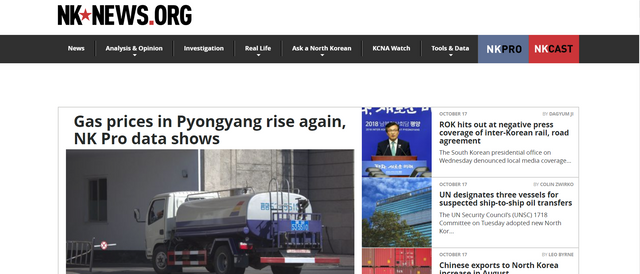
The book, Ask a North Korean: Defectors Talk About Their Lives Inside the World’s Most Secretive Nation, originally comes from the “Ask a North Korean” section of the NKNews website. The essays and stories listed are re-organized and edited into relevant categories to help facilitate reading for the audience. This column that the information is taken from talks about the experiences and lives of how ordinary people work, love, study, live, etc. The range of the authors of these stories are purposefully diverse in range, whether they’re male or female, young and old, extremely poor, or from a wealthy family.

source
The Importance of Truly Understanding
Why go through all the trouble of pinpointing accurate representations of North Korean life and culture? Not having a correct understanding of this representation can have consequences. If the outer modernized world assumes that everyone in North Korea is subject under the same conditions as the ones described in novels such as The Accusation, then everyone is going to assume that even the wealthy and middle class citizens are also going through such conditions. This flawed narrative will have a much more negative perspective on the North Korean regime than they normally are.
Of course, this doesn’t excuse the terrible things that the regime has done, including this brainwashing of the citizens through extreme propaganda. But we need to be objective of their wrongdoings, and fabricating additional assumptions of what they’re doing their citizens is a whole other matter. This may seem controversial to many readers, but false propaganda has their effects on westernized modern nations, with how they view the people that escape North Korea. This leads to assumptions, stereotyping, and discrimination on these defectors when they try to find work in South Korea, or even the United States.
Ordinary North Korean citizens actually live very similar lives to us, much to my surprise. This article highlights the fact that South Koreans and North Koreans lead very similar lives. This is shown through a series of slide pictures, where I would personally not see a difference if it weren’t for the labels that were listed in the corner.
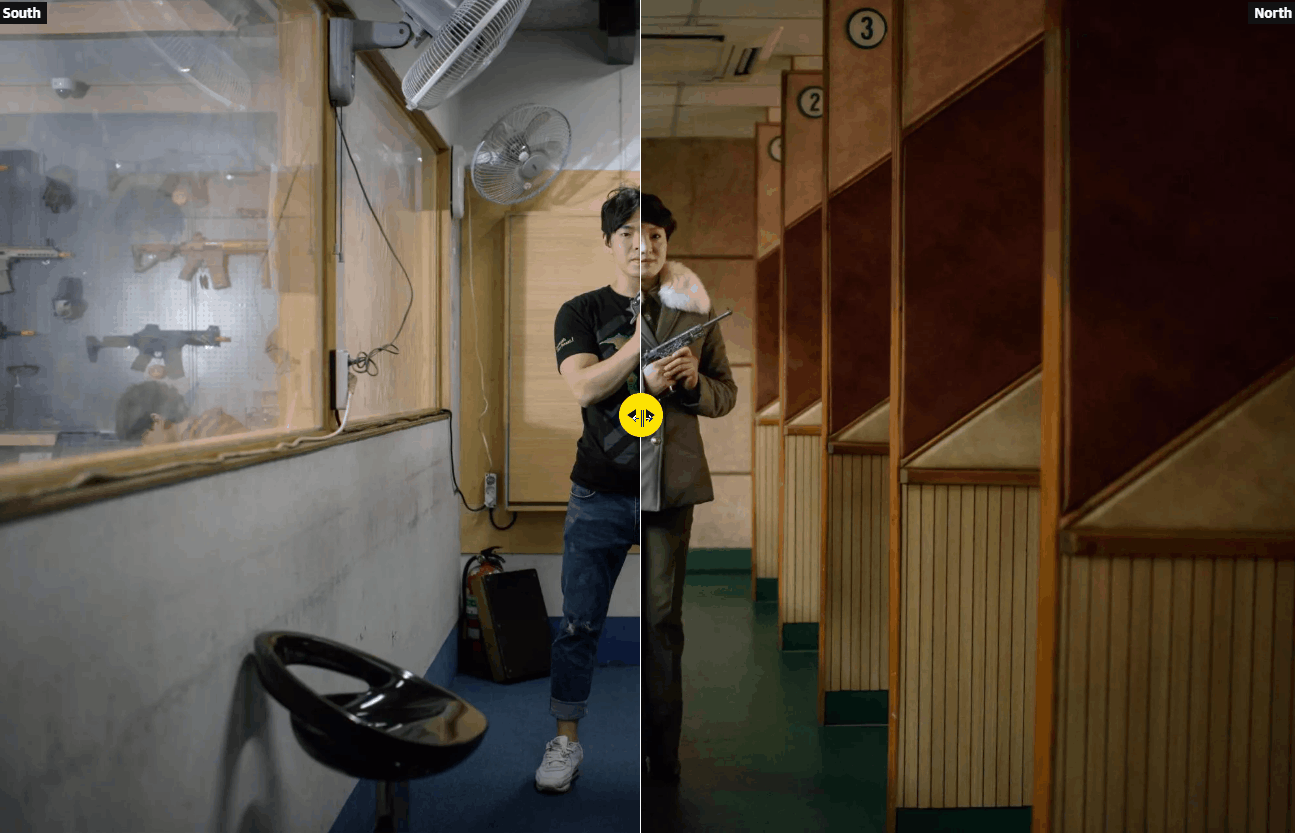
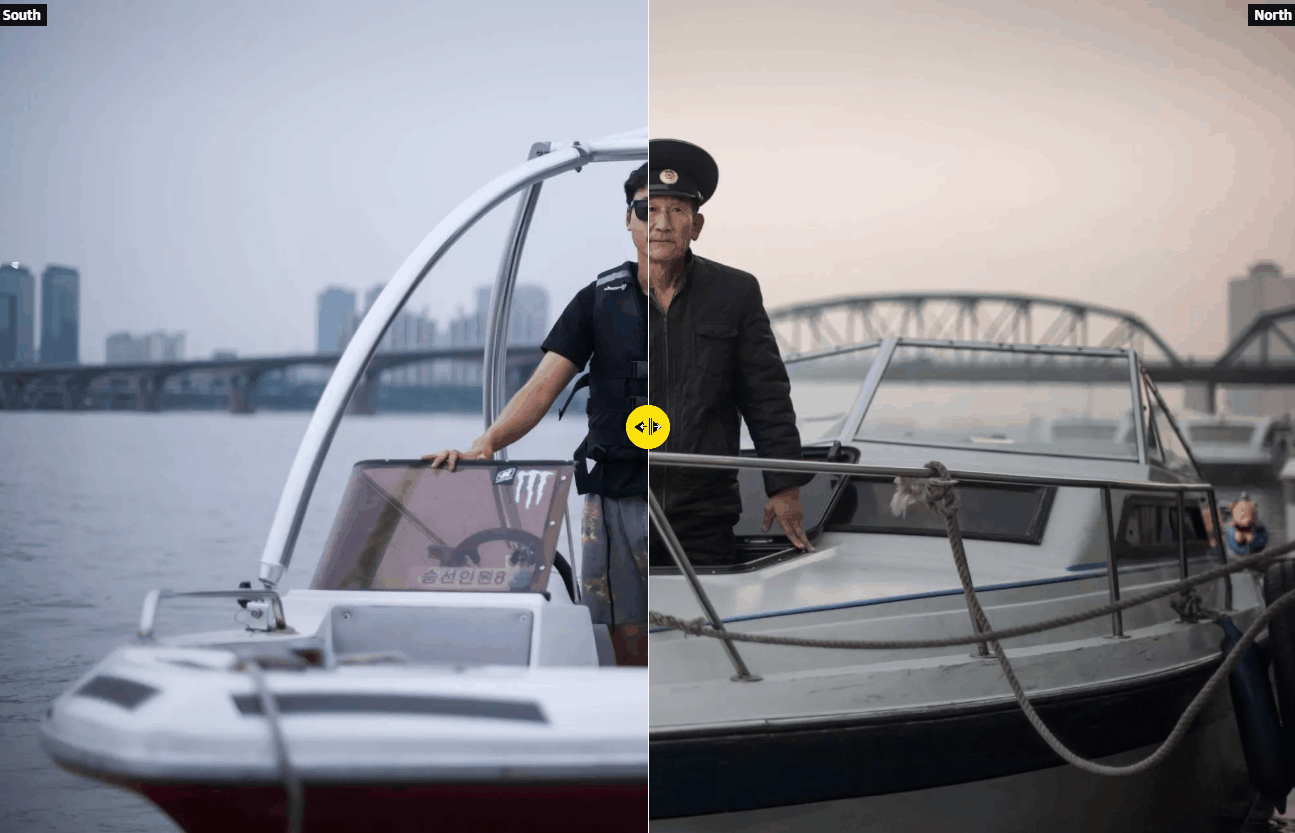
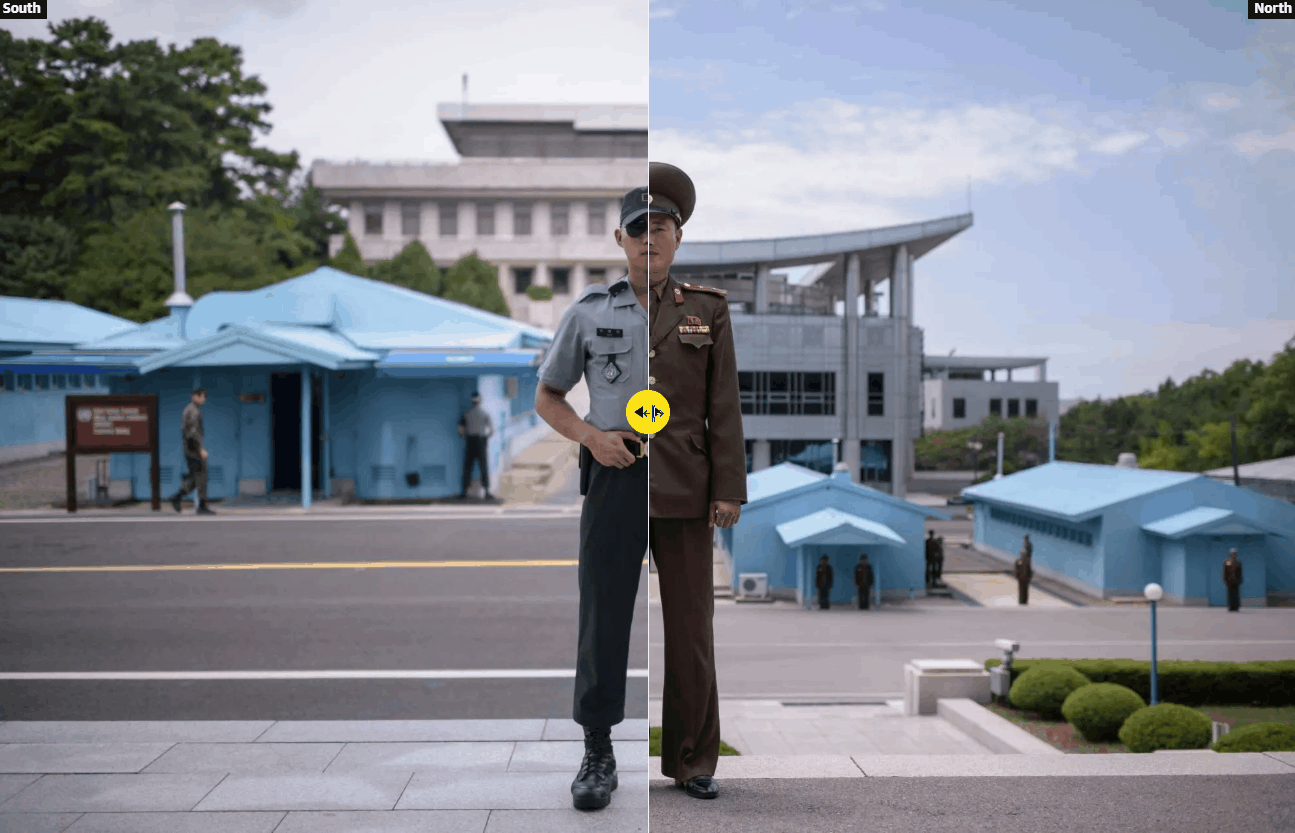
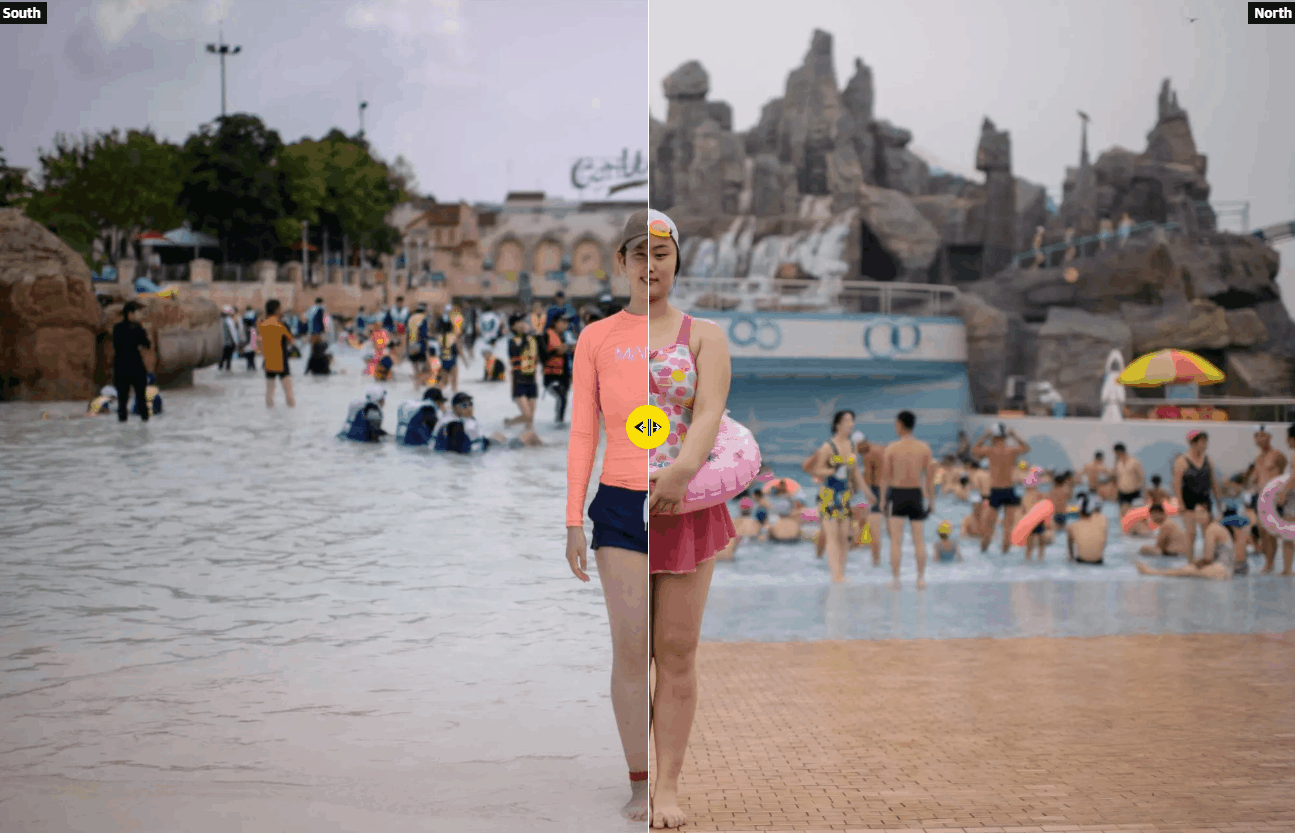
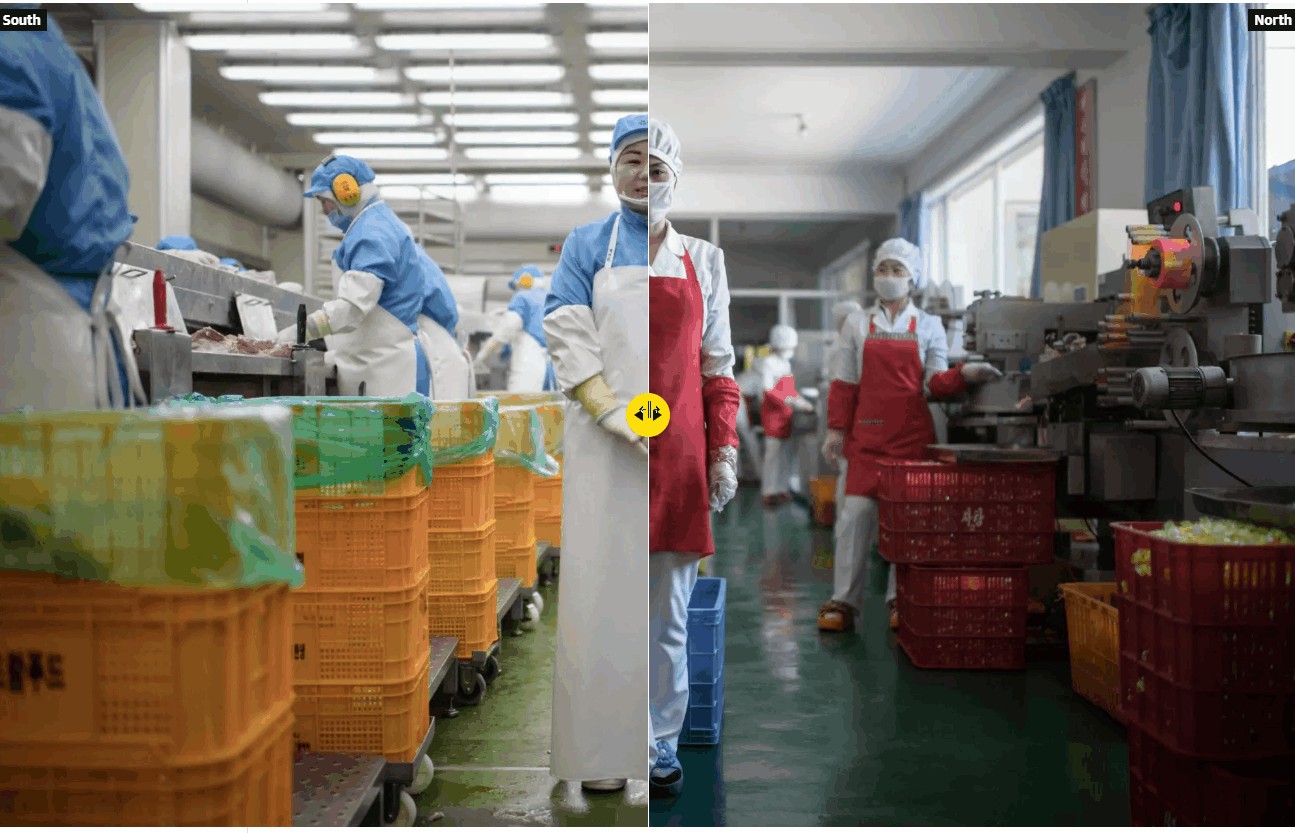
source

Interesting article, @twotoedsloth!
I think it's impossible to project what the reality is for North Koreans. The regime will only tell us what they want us to know. And sure, Bandi's account is outdated by a couple of decades but I think that it comes closest to imagining what life is for the average North Korean. But the book also makes it clear that it's the voice of the people who are not wealthy or in a position of power.
I'm not sure I agree with that line of thought. Mostly because I think that it's unfair for us, from the outside, to consider ourselves modernised and North Korea as backward. It's the same narrative of how colonisers considered themselves as 'civilised' and how indigenous tribes were not. Also, just because a few wealthy people in North Korea probably don't have the same lifestyle as the rest of the country, it doesn't reduce the or diminish the reality for the people who are living the lives described in Bandi's book.
I do agree with the undercurrent that North and South Koreans are the same people at the end of the day. And I'm excited to see how this similarity is highlighted in the thesis!
Thanks for reading, @manouche !
I understand your perspective, and I seek to reach a compromise regarding their life accounts from these books like "The Accusation". My main focus is to ultimately use whatever's available regarding quantitative statistics and data of the country to supplement the events of these stories to bring more of a "justified" fiction rather than being baseless from an analytical standpoint.